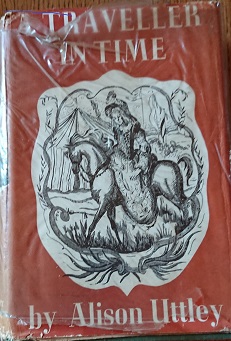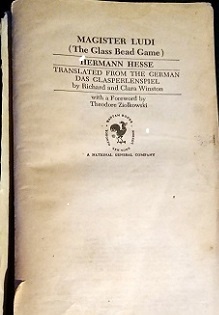Dreamworlds of the Pandemic

I walk into the picture . . .
A Traveller In Time, Alison Uttley: (https://en.wikipedia.org/wiki/Alison_Uttley); (https://alisonuttley.co.uk/). I was fascinated by this story when I first met it, long ago, because the frame of this 'pioneering time slip story for children' itself seemed set in a vanished world almost within my reach. I felt I might open a familiar door, maybe in my gran's house down in the valley, and step through into a world of lamps and darkness, and horse-drawn traffic; where country boys could come knocking on the door of an 'old, little' house in Cheyne Walk, selling honey-scented bunches of cowslips from the fields, and a girl my age (or thereabouts) could rummage in old chests for silk embroidered waistcoats, pearl-handled pistols... Penelope Taverner (sent off to the old Derbyshire farm to convalesce, and save her parents from more awful doctor's bills), walks into the world of the tragic stand-off between Mary Queen of Scots and Elizabeth of England, and hardly even notices she's time-travelling. She just opens a door and there she is, among different people, who dress a little strangely: miraculously accepted as exactly what she is, the daughter of an old family connection, come to stay for a while.
Nothing can be done. Mary of Scots can't be saved, and nor can the courageous Babingtons. It's intense, romantic, and a bit voyeurish, in a way, because the time-traveller is always going to walk away unharmed, if not untouched. But what I noticed this time is the way Alison Uttley's method is clearly visible, and a real innovation. There's no clunky explanation, no rationalisation. It's all about hints and glimpses, disparate haunting fragments; drifting into each other, clinging like spiderweb, to create a sense of a dimension where time doesn't pass, and history is never dead meat, it's always living people and their different but equal versions of the world.
And to think, if Alison Uttley had been born a generation later, she'd have been an academic scientist. What a waste! See also The Country Child, featuring what I'm sure is the self-same old Derbyshire farmhouse, a living, breathing creature and its inhabitants, in a past much closer to Alison's present, but now completely vanished.

If you don't care to escape into long dead real people's complicated and tragic lives, you could try an allegedly more intellectual kind of unreality. Magister Ludi, Herman Hesse (aka The Glass Bead Game Das Glasperlenspiel) was one of the hallowed books, like Zen and the Art of Motorcyle Maintenance, (I remember something about worshiping a spanner), or anything by Carlos Castaneda that everyone cool was supposed to read, when I was a university student . . . I don't remember if I ever read it, in those days. Set in an imaginary twenty-fifth century (but really, and obviously, about Germany between the two World Wars) it's the slow, placid, yet highly charged life story of Joseph Knect (it means servant)------how he's recruited as a schoolboy to the hallowed, scholarly province of Castalia, how he rises through the ranks to become the Master of the famous Glass Bead Game, and the fateful decision he makes, when at the height of his powers. There are no female scholars, and there is no overt homosexuality in this community, only the purest love and affection (along with the inevitable scrapping for precedence and dominance); though I think I spotted the mention of a discreet house where sensible women were kept, to satisfy male needs hygenically. Hogwarts! I thought, for the first two hundred or so pages. And Hogwarts with no girls, which is even better! Either Hogwarts or C.P.Snow; a world of incredibly pure male privilege; incredibly pure in that, as opposed to say, the hierarchy of the Catholic Church, there's almost nothing to tell you what these cloistered men actually do. They just are scholarly, and they play this mysterious game, and ... That's it. But Joseph Knect's slow life story grew on me, I don't know how. I just started to feel for his dreams, and for his isolation, as he climbs the ladder (without any vulgar effort or scheming, nb), until there's nothing left to achieve, and its all Maya, after all.
Maya; illusion of the senses, and a "real-world" date, by the last scenes, of around 1933 I suppose. & there's no escape from history any more. The copy you see above was acquired from two Americans we met in Java, in August 1985, while sharing a long, hot wait for some boat or other.

Comments
Display comments as Linear | Threaded